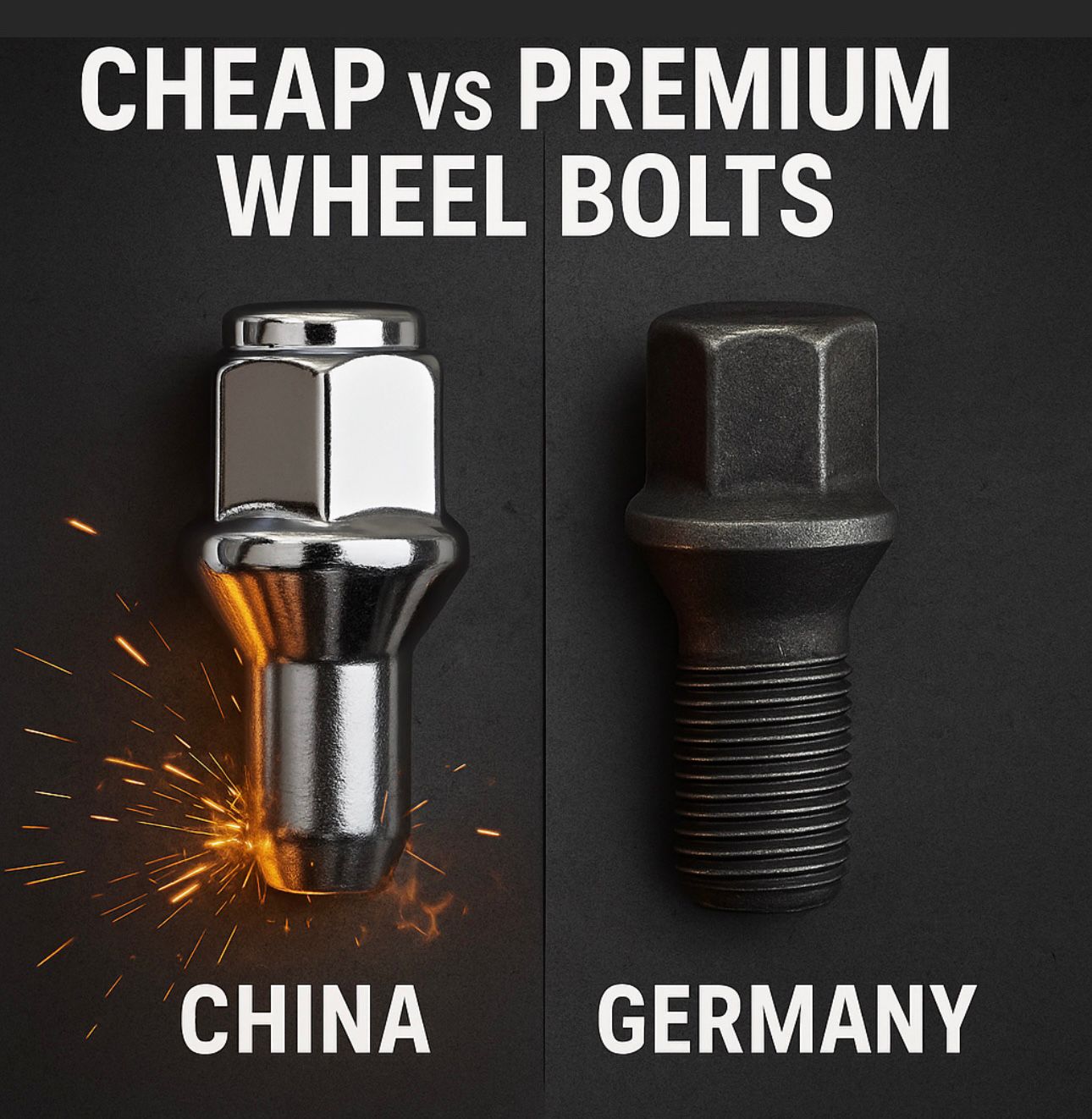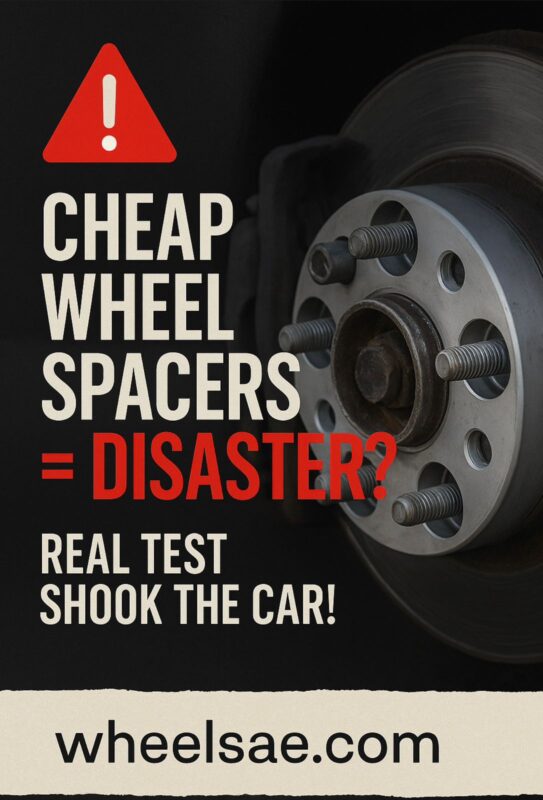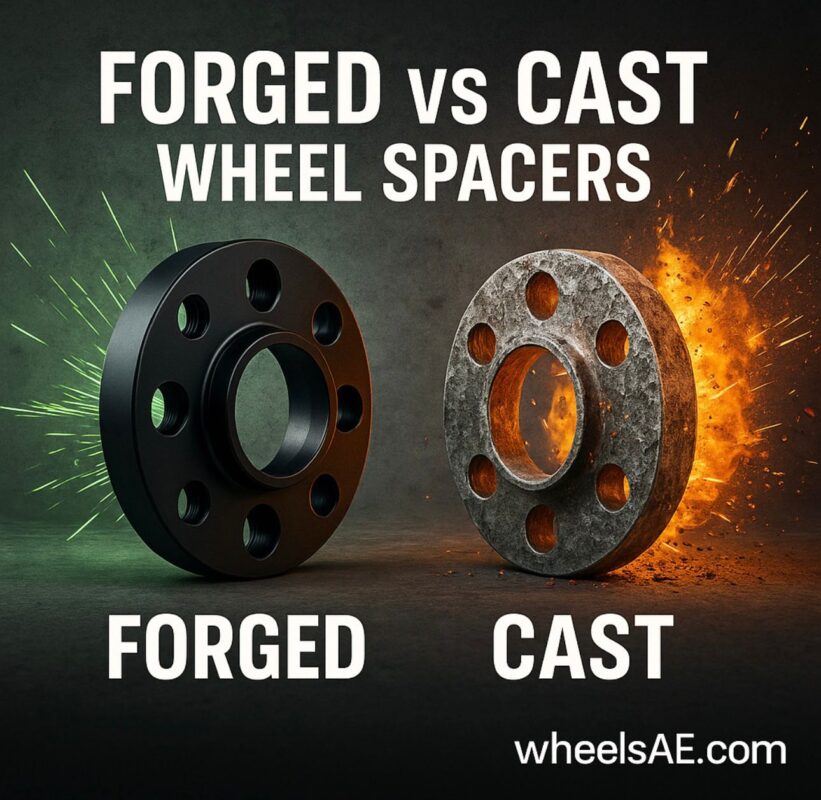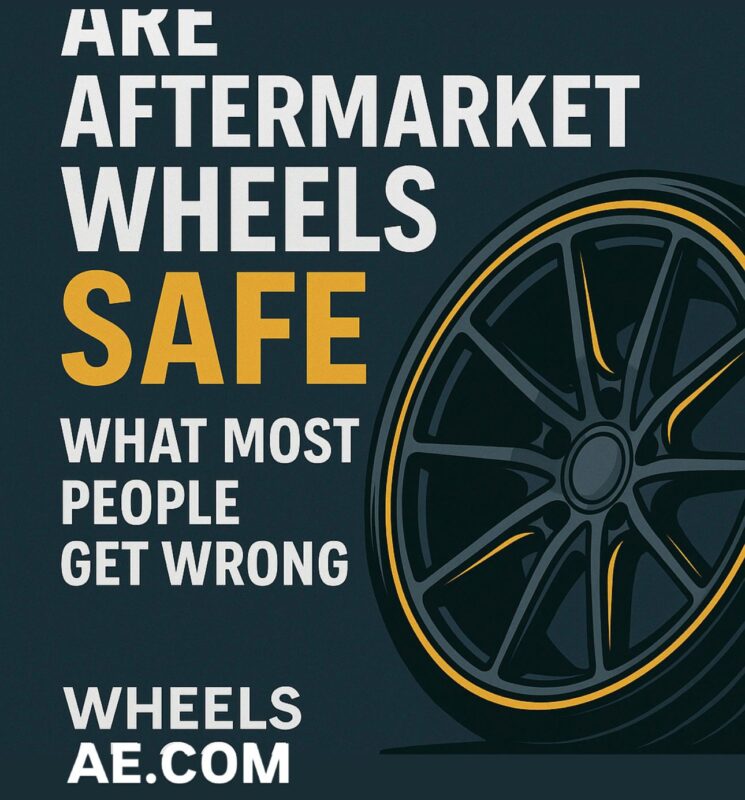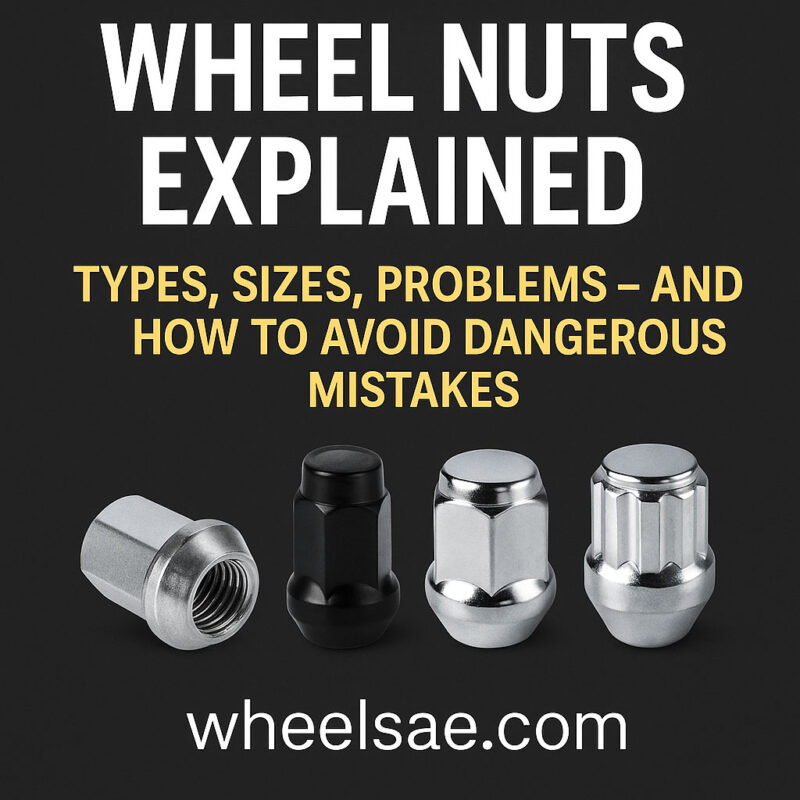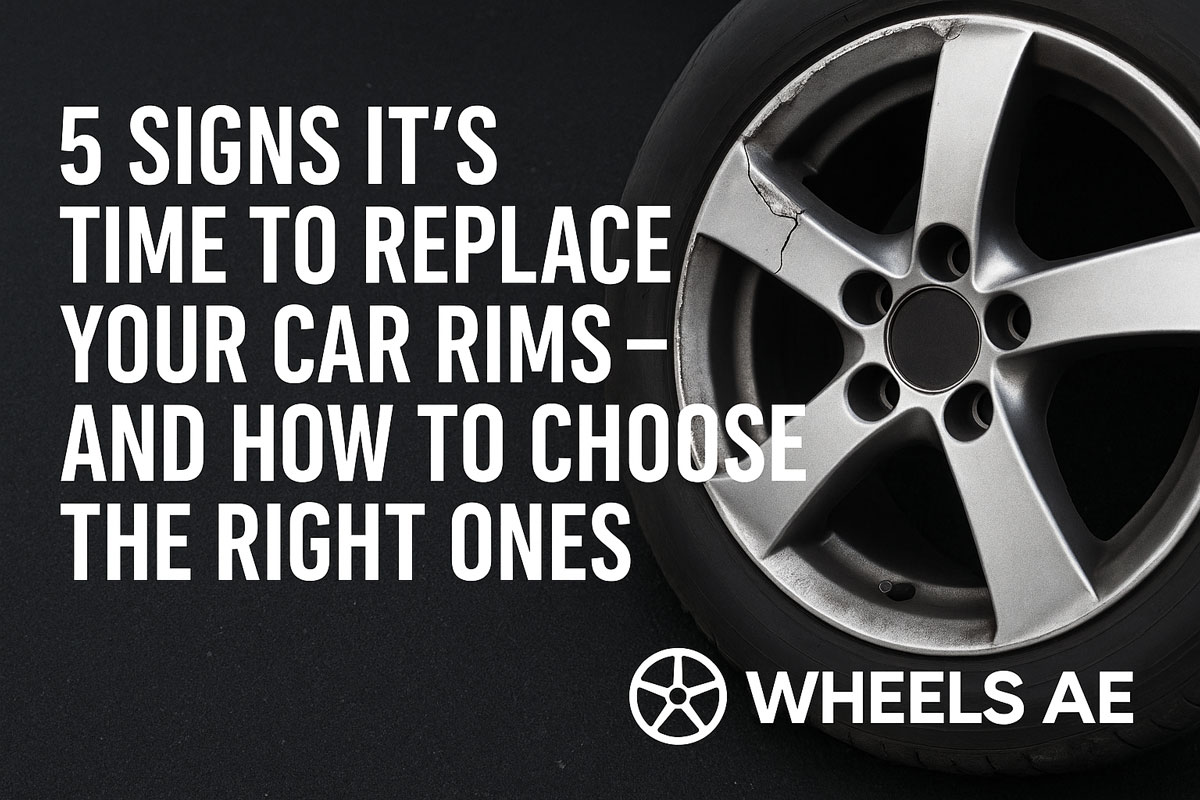Wheel Bolts Comparison:
🔩 Cheap vs Premium Wheel Bolts: China vs Germany (What Really Matters?)
Most drivers focus on wheels — but ignore the bolts holding them. In this article, we dive into the real difference between cheap wheel bolts (like those made in China) and premium ones (like German-engineered). Spoiler: the difference can literally be life and death.
⸻
🔍 Why Do Wheel Bolts Matter So Much?
A wheel bolt is the only thing connecting your wheel to the car.
If it fails — the wheel can detach at speed. Here’s what wheel bolts need to do:
• Handle torque from the engine
• Resist extreme heat during braking
• Endure road impacts, potholes, and vibrations
• Maintain tension over thousands of kilometers
Yet many people choose the cheapest option — without knowing what they’re compromising.
⸻
🇨🇳 Chinese vs 🇩🇪 German Wheel Bolts: What’s the Real Difference?
Let’s break it down from all angles:
⸻
1. 🧱 Material Quality
Chinese Bolts:
Often made from low-grade carbon steel or recycled alloy mixes. These bolts may look shiny, but are soft and prone to stripping or stretching.
German Bolts:
Typically made from hardened alloy steel (like 10.9 or 12.9 grade), tested under DIN and TÜV standards. Much higher tensile strength and fatigue resistance.
⸻
2. 🔩 Thread Precision
Chinese: Threads may be slightly off-spec, causing poor mating with hubs — especially dangerous in performance or aftermarket wheels.
German: CNC-machined threads with perfect tolerances. Ensures proper torque, zero slippage, and maximum clamping force.
⸻
3. 🔥 Heat Resistance
Chinese Bolts: Paint or chrome finish melts or discolors under high braking temperatures (150°C+).
German Bolts: Treated with zinc-nickel, black oxide, or Dacromet coating to resist corrosion and heat up to 300°C.
⸻
4. 🔧 Torque Retention
Chinese bolts may loosen over time, requiring frequent retightening.
German bolts maintain torque values for months — especially with proper conical or ball seat fitment.
⸻
📊 Performance Comparison Summary
1. Material Quality
• Chinese Bolts: Made from low-grade steel, prone to bending or failure under load.
• German Bolts: Made from hardened alloy steel, with high strength and durability.
2. Thread Accuracy
• Chinese Bolts: Often have inconsistent threading, which can lead to poor fitment.
• German Bolts: Precisely CNC-machined threads for perfect hub engagement.
3. Heat Resistance
• Chinese Bolts: Paint or chrome may degrade under braking heat.
• German Bolts: Coated with high-temperature treatments like black oxide or zinc-nickel.
4. Safety Standard
• Chinese Bolts: Usually not certified, may skip important testing.
• German Bolts: Tested under TÜV or ISO standards for safety and reliability.
5. Torque Holding
• Chinese Bolts: Tend to loosen over time and need frequent checks.
• German Bolts: Hold torque securely even after long-term driving.
6. Price
• Chinese Bolts: Very cheap and easily available.
• German Bolts: More expensive, but justified by quality and safety.
⸻
🚨 Real-World Example
We installed a set of cast wheels on a 2022 Dodge Charger using:
• Set 1: Generic China-made bolts (AED 45)
• Set 2: German-engineered bolts (AED 180)
After 3 weeks of daily driving:
• China bolts showed wear and rust, and 3 needed retightening.
• German bolts stayed tight and rust-free, even after multiple wash cycles and highway runs.
⸻
❗️So… Are Expensive Bolts Worth It?
If your wheels cost over AED 2000 and you’re driving at highway speeds…
YES. 100%.
The extra AED 100-150 you save by buying cheap bolts isn’t worth the:
• Vibration issues
• Paint flaking
• Loose wheel risks
• Time spent checking torque
• Potential accidents if bolts snap
⸻
✅ How to Spot a Premium Wheel Bolt
• Look for 10.9 or 12.9 stamped on the head
• Avoid bolts with overly shiny chrome finishes
• Prefer black oxide, zinc, or Dacromet coatings
• Buy from trusted brands like Bimecc, H&R, Febi, or Gorilla
⸻
🔗 • Shop Premium Wheel Bolts
• Wheel Spacers and Accessories
⸻

